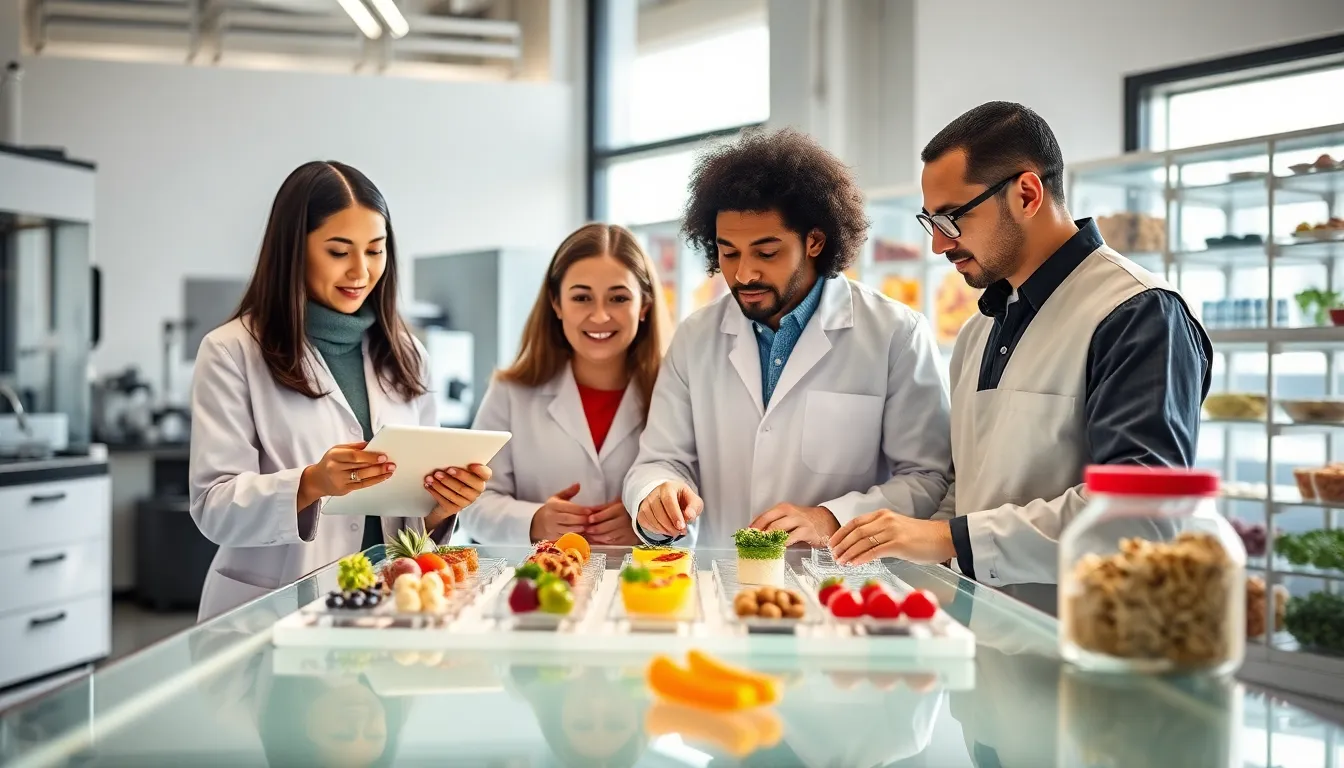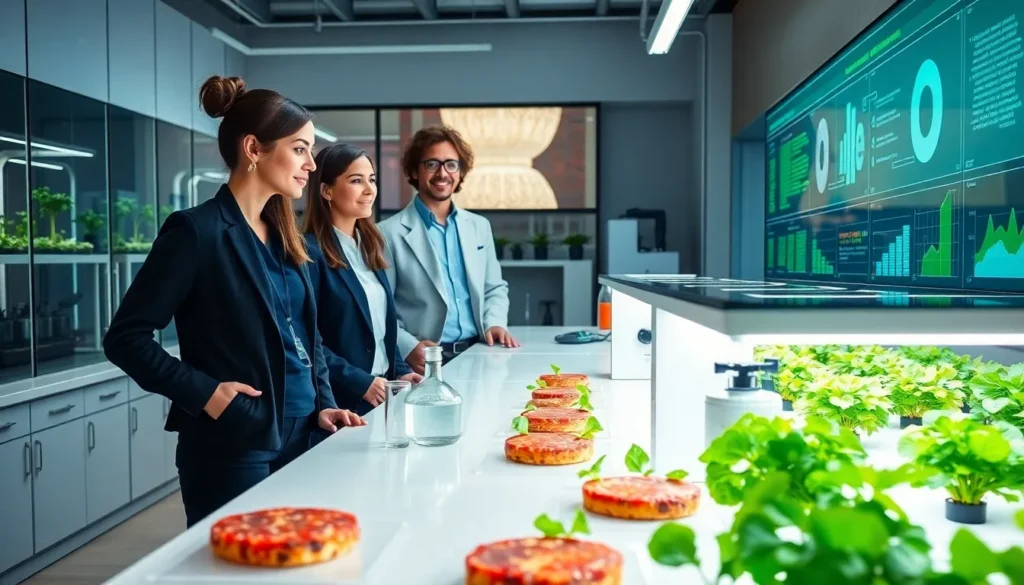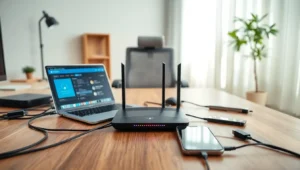Welcome to a culinary revolution where science meets the kitchen. From lab-grown burgers to genetically optimized veggies, innovative food science is not just a trend: it’s a game changer. Ever wondered how your food affects the planet? Or how technology could make your meals healthier and more delicious? Strap in as we jump into the world of food innovation, packed with serious breakthroughs and a sprinkle of humor. After all, what’s a better punchline than ‘growing your own bacon’? Let’s explore how emerging technologies are rewriting the cookbook of the future.
Table of Contents
ToggleOverview Of Food Science Innovations

Food science today is not just about what’s on your plate: it’s about the science behind it. Innovations in this field have taken leaps and bounds, focusing on how food is produced, preserved, and consumed. From the advent of food additives that extend shelf life to advanced methods of food preservation, every day brings new breakthroughs. As people become more health-conscious, innovations focusing on nutrition also gain traction, enabling enhanced food products that are nutritious and tasty.
Also, the surge of interest in food sustainability shows how innovations aim not just to fill stomachs but also to feed the planet responsibly. And let’s not forget about the exciting hands-on approaches from molecular gastronomy, where chefs blend food and science to create mind-bending dishes.
Altogether, food science innovations are creating a spectrum of opportunities that resonate with today’s consumers.’
Key Emerging Technologies in Food Science
Emerging technologies are rapidly reshaping how food is grown, processed, and consumed. One such technology is vertical farming. By utilizing vertical space and controlled environments, farmers can grow crops indoors, minimizing land and water usage while maximizing yield.
Also, precision agriculture employs sensors and GPS technology, ensuring that resources like water and fertilizer are used judiciously, directly reducing waste. Other exciting developments include 3D food printing, which chops down food preparation time while allowing customization that is simply appealing. Just imagine printing your dinner. Also, the use of artificial intelligence in food safety and quality assurance represents a larger trend toward automation, making detection of contaminants quick and efficient.
The integration of these technologies can help food producers optimize their operations while responding to increasing consumer demands.
Impact Of Biotechnology On Food Production
Biotechnology has profoundly changed food production, offering tools to create resilient crops and sustainable practices. Genetically modified organisms (GMOs) play a significant role here, showing enhanced growth rates and resistance to pests. While some have raised concerns about their long-term effects, GMOs have been shown to significantly reduce the need for chemical pesticides, making them an environmentally friendly choice over time.
Gene editing technologies, like CRISPR, have elevated this conversation further. They allow scientists to edit specific genes within an organism, potentially delivering improved nutritional profiles without the addition of external genes. Imagine strawberries with a longer shelf life or rice that doesn’t require as much water. These developments exemplify how biotechnology helps produce more food with fewer resources.
Sustainability Through Innovative Food Technologies
Sustainability has become a pressing issue of our time, and food science is stepping up to the plate, in a big way. Innovative food technologies are increasingly focusing on reducing waste and conserving resources. One noteworthy method is using food by-products in new ways, transforming what would normally be waste into products like biofuels and animal feed.
Also, technologies like aquaponics, which combines aquaculture and hydroponics, create a self-sustaining cycle that offers both fish and vegetables without the need for extensive water use. Moving towards plant-based diets also contributes positively to sustainability, leading to innovative methods of cultivating and promoting alternative proteins, such as those derived from insects or lab-grown meat.
Future Trends In Food Science And Technology
The future of food science is poised for some exciting developments. Consumers are already embracing personalized nutrition, powered by advancements in wearable technology and health data. This trend may lead to meals tailored specifically to individual dietary needs and preferences, reducing the risk of food-related health issues.
Also, with advances in blockchain technology, transparency in food supply chains is becoming more feasible, allowing consumers to track their food from farm to table. Imagine knowing the exact path your meal took, kinda like Insta-stalking your dinner. Besides, innovations in lab-grown food are set to grow, providing alternatives that could lessen the impact of traditional farming. Expect tasty advancements that not only satisfy palates but also take care of the Earth.
Challenges And Ethical Considerations
Even though these exciting advancements, the world of food science isn’t without its challenges. Concerns about food safety and ethical implications are hot topics. For instance, discussions around GMOs and biotechnology often spark debates about long-term health effects and environmental impact. Regulatory frameworks strive to keep pace with innovations but often lag, creating uncertainty for both producers and consumers.
Also, the divide between those who can access these innovative food choices and those who cannot remains critical. Bridging this gap requires not just advancements in technology but also a commitment to equitable distribution to ensure everyone benefits from new food solutions.





